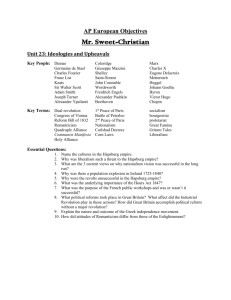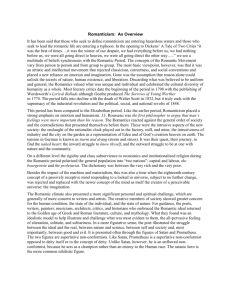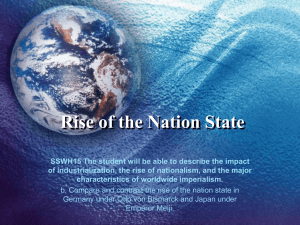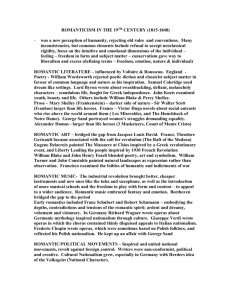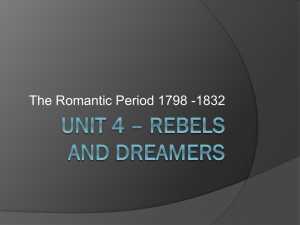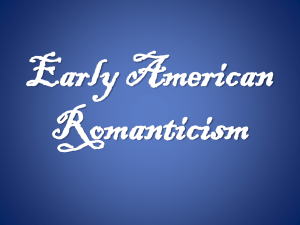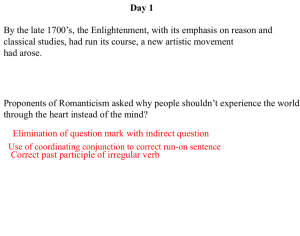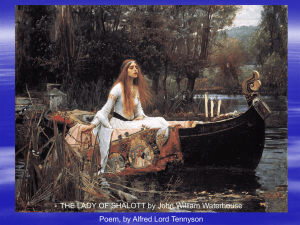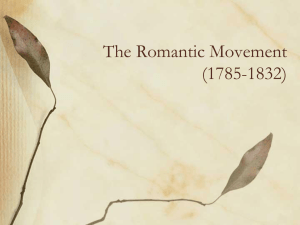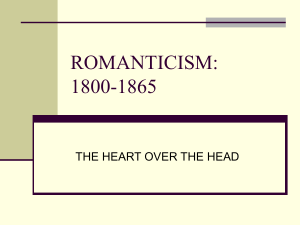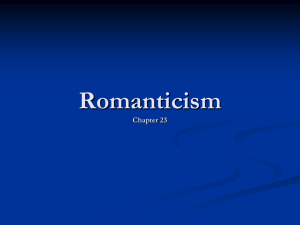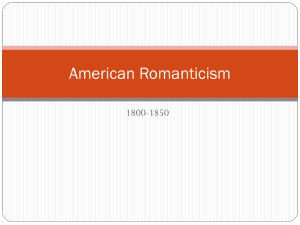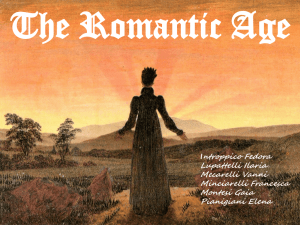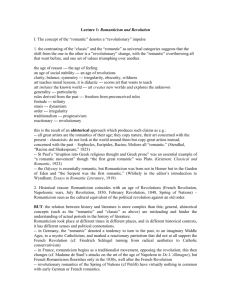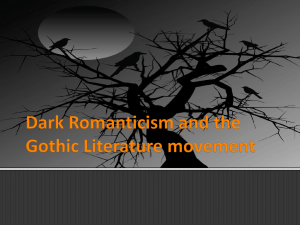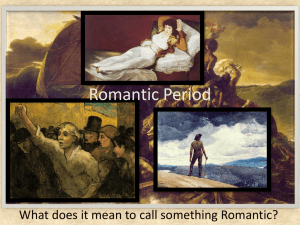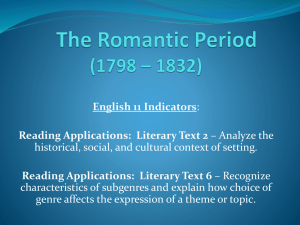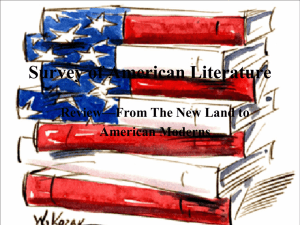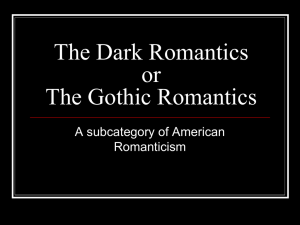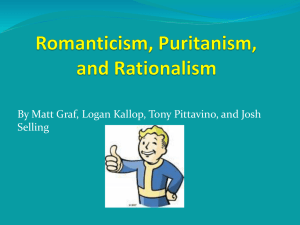Slide 1
advertisement
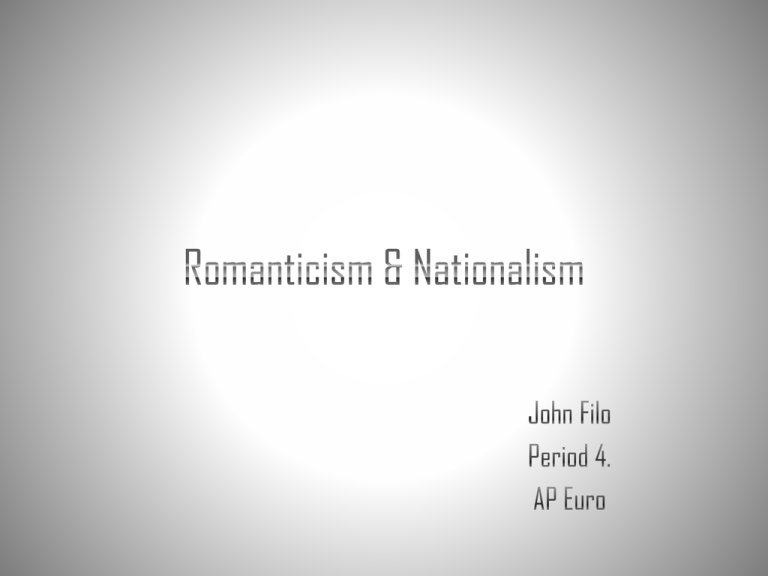
Analyze three examples of the relationship between Romanticism and nationalism before 1850. • • • • • • • • Romanticism was a widespread characterized by a belief in emotional exuberance, imagination, and spontaneity. The romantic movement was partly a revolt against classicism and the Enlightenment. Romantics rejected the classical emphasis on order and rationality. William Wordsworth (1770-1850) was the towering leader of English romanticism. Romantic artists had their goals of free expression and emotional intensity with Romanticism. Romantics stressed individualism, led bohemian lives, and rejected materialism. Romantics used nature as a source of inspiration, and they emphasized the study of history. Romantic composers rejected well-defined structure in their efforts to find maximum range and emotional intensity. • • • • • • • Nationalism was originated in the French Revolution and Napoleonic wars. Nationalism didn’t fully develop until the years after 1815. Advocates Early advocates of the “national idea” argued that each people had its own genius and its own cultural unity. For nationalists, cultural unity was basically self-evident, manifesting itself especially in common language, history, and territory. In fact, in the early nineteenth century such cultural unity was more a dream than a reality as far as most nationalities were concerned. Despite these basic realities, sooner or later European nationalists usually sought to turn the cultural unity that they perceived into a political unity. They sought to make the territory for each people coincide with well-defined boundaries in an independent nation-state. Early nationalists usually believed that every nation, like every citizen, had the right to exist in freedom and to develop its character and spirit. • Since the fifteenth century, the Greeks had been living under the domination of the Ottoman Turks. • In spite of centuries of foreign rule, the Greeks had survived as a people, united by their language and the Greek Orthodox religion. • For the result of the revolution, the Greeks wanted to obtain National Liberalism. • Writers and artists, moved by the romantic impulse, responded enthusiastically to the Greek national struggle. • The fuse which sparked the uprising during 1848 in Paris was the refusal of King Louis Philippe and his chief minister, Guizot, to bring about electoral reform. • Louis Philippe’s “bourgeois monarchy” had been characterized by stubborn inaction and complacency. • In February 24 , 1848, Louis Philippe had abdicated in favor of his grandson & on the same day, the common people made the decision that they did not want to tolerate a monarchy any longer. • This revolution was driven by nationalist and republican ideals among the French general public. • Throughout central Europe, the first news of the upheaval in France evoked feverish excitement and eventually revolution. • Liberals demanded written constitutions, representative government, and greater civil liberties from authoritarian regimes. • When the governments hesitated, popular revolts followed. • Hungarian nationalism resulted in revolution against the Austrian overlords.
